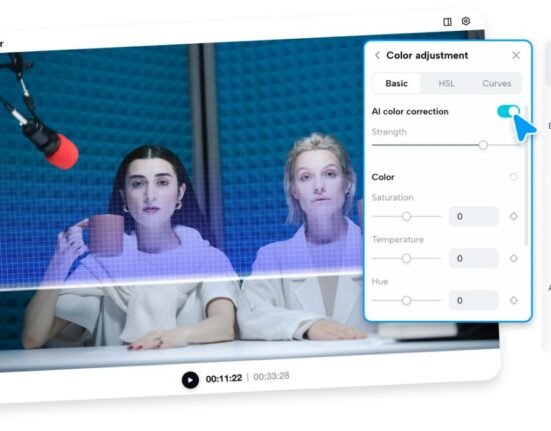Automation has thoroughly transformed how scientists observe, measure and understand the world. Yet behind the technology lies a much more subtle shift, a psychological one, redefining how researchers think, decide and innovate. Contemporary labs are now removed from the world of microscopy and manual observation alone. They are environments consisting of intelligent tools, advanced software, and integration with data, and any interface involving artificial imaging and analysis is changing the face of discovery itself.
Automated Cell Counters, AI Imaging and More
Your view as a scientist has clearly extended beyond the capabilities of the human observer. Equipment that was once operated manually is now capable of complex analysis in a matter of seconds. Within this group, the automated cell counter and artificial intelligence imaging technology are vital components to any biologist or scientist who demands accuracy coupled with rapid results. They can perceive detail beyond the human visual range, analysing thousands of cell specimens with uncanny accuracy.
However, their impact goes beyond the mechanical process involved. Automation alters “scientists’ ways of thinking about observation.” When repetitive work is delegated to machines, mindspace is liberated to think, to interpret, or to creatively reason out, rather than dedicating actual labor to, for example, cell counts or the calibration of instruments. Scientists will be able to concentrate their efforts not on the procedure, but on interpreting the results.
This transition illustrates a broader truth: technology doesn’t replace human perception; it amplifies it. Just as telescopes expanded our view of the cosmos, AI imaging and automation now expand your understanding of the microscopic world, allowing scientists to see patterns that once remained hidden.
The Cognitive Shift Behind Scientific Automation
Automation in the world of science has implications that extend far beyond mere efficiency, as automation marks a paradigm shift in terms of pace and rhythm, as a scientist is now engaging with a system that has the potential to process millions of pieces of information instantaneously, as opposed to the manual trial and error that the scientist was engaged with before.
Rather than emphasising mere mechanical accuracy, researchers are increasingly being encouraged to rely on the intelligence of their machines while still retaining control over their decisions. A psychological shift involving a willingness to abandon old habits, including the pleasant comfort of repetitive tasks, involves accepting the interpreter or analyst role.
Automation also relieves cognitive fatigue. It removes the strains involved in mundane tasks, thus maintaining mental clarity, which is crucial when making decisions or performing complex calculations. Cognitive focus, therefore, has improved, as creativity and accuracy are now harmonious rather than competing skills.
Decision-Making in the Digital Lab
Decision-making has long been a crucial part of the progress made by science. The decision process, however, has changed in the digital lab. Rather than a decision being made as to how a test should be completed, decisions are made as to what data is important and how that data should be interpreted. The data comes quickly, but interpretation is a human process. The contemporary scientist functions as a collaboration buddy as well as a supervisor of technology.
The anomalies or correlations indicated by AI technology are identified by human intuition, as the conclusions drawn are a result of human understanding and interpretation. The feedback process involves an improvement in human judgment as technology continues to help out. It will furthermore decrease uncertainty anxiety, a psychological condition prevalent in research procedures. Since automation offers reliability, a scientist can make decisions with greater assurance, knowing that their results are the product of rigorous, objective analysis by automation.
The Function of Psychology Within Result Interpretations
While the data comes from a computer, its meaning comes from a human brain. Analysing results demands a degree of cognitive flexibility, switching between analysing and associative thought processes. Such a psychological trait has now become the most valuable asset in modern science. Bias is a bias that comes naturally to human minds. Even the most objective scientist can unintentionally filter results through their biases.
Aware of this, scientists are now turning to automation, but this time, not just to gather information but to check their assumptions as well, since technology can offer proof unaffected by bias or emotion. Automation brings a degree of mindfulness into the equation as well. When researchers trust machines to do repetitive, precision work, they are freed to examine their findings with fresh minds. It is a union between the efficiency of machines and the curiosity of man that enhances understanding, rather than reduces it.
Balancing Human Insight with Machine Intelligence
The partnership between human and technology in a lab setup is not a competitive one but rather a collaborative affair. Humans are better at things like ethics and imagination, while machine intelligence leans towards things like consistency and pattern recognition. While machines handle the measurable, people handle the meaningful. The best outcomes emerge when those worlds meet, when data inspires questions and questions drive discovery.
A greater part of this pertains to the growing importance of emotional intelligence. Interdisciplinary collaboration, the communication of complex findings and an adjustment to new technology all require workers to have a greater degree of empathy and self-awareness. Researchers, as a result, who are well-balanced will excel and have a healthy, sustaining career as a scientist.













Leave feedback about this